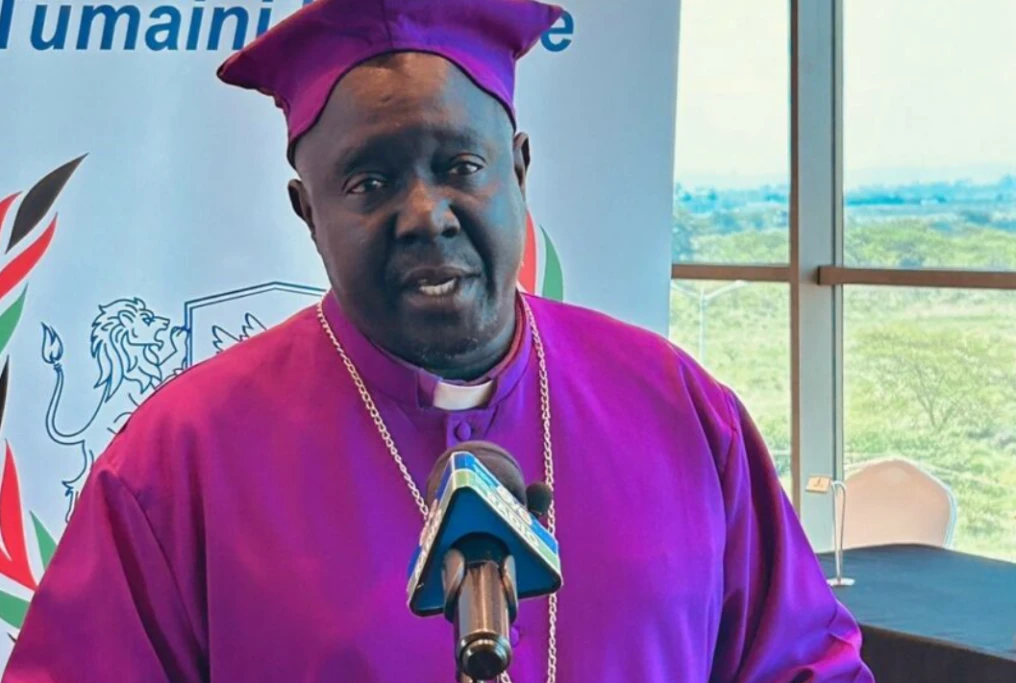
The chairperson of the Church Leaders Mediation Initiative and Archbishop of the Central Equatoria Internal Province of the Episcopal Church of South Sudan, Dr. Paul Yugusuk, has clarified that the church’s effort to reach out to the holdout groups is not intended to influence their positions on the Kenyan-mediated Tumaini Initiative.
On January 31, retired Bishop Enok Tombe of the Episcopal
Church of South Sudan’s Diocese of Rajab revealed in an interview with The
Radio Community that church leaders, led by Archbishop Dr. Yugusuk, plan to
engage Thomas Cirilo and other groups that neither signed the 2018 peace
agreement nor participating in the Tumaini Initiative.
The effort aims to encourage their involvement in the country's peace process. However, on February 3, 2025, Dr. Yugusuk clarified in a statement that the initiative is not intended to influence or alter the holdout groups' stance on the Tumaini Initiative as may be percieved.
“[The] Church Leaders Mediation Initiative (CLMI) is
involved in sideline Track II mediation processes aimed at seeking to know the
position and views of stakeholders including how they think the conflict in
South Sudan can be resolved. Our objective is not to convince stakeholders to
join Tumaini or not,” Dr. Yugusuk stated.
Gen. Thomas Cirilo, who leads the National Salvation Front
(NAS), an opposition army and other holdout groups have been engaged in peace
talks with the government in Rome since 2020.
Mediated by the Sant’Egidio Community, the negotiations
included other opposition groups under the South Sudan Opposition Movements
Alliance (SSOMA).
However, after years of stalled progress, President Salva
Kiir shifted the talks to Nairobi in December 2023, requesting Kenyan President
Dr. William Samoei Ruto to take over as the new mediator. The negotiations were
rebranded as the Tumaini Initiative, meaning "hope" in Swahili.
When the talks were relocated, some of them declined to
participate, citing insecurity and unresolved issues.
Their refusal to join the Tumaini Initiative has sparked
concerns among citizens and peace advocates, as it undermines inclusivity in
the peace process.
While the government continues negotiations with other
opposition groups, holdout groups’ absence raises fears that a fragmented
approach could jeopardize lasting peace in the country.
Dr. Yugusuk emphasized that the Church Leaders Mediation
Initiative is committed to fostering a conflict resolution process that is
inclusive and acceptable to all stakeholders, as it views this as the only path
to achieving sustainable and lasting peace in South Sudan.
In pursuit of this goal, he stated that the initiative is
actively consulting key stakeholders, including senior church leaders, civil
society representatives, Tumaini peace process delegates, senior government and
opposition officials, as well as both signatories and non-signatories to the
R-ARCSS.
“The CLMI will develop detailed report on the consultation,
which will be shared with the South Sudan Council of Churches and other faith
stake holders for comprehensive deliberations and analysis,” he said.
The Tumaini Initiative peace talks in Nairobi, led by the Kenyan government, aim to foster lasting peace in South Sudan by engaging opposition groups that did not sign the 2018 peace agreement. However, not all non-signatory parties are participating in the process.